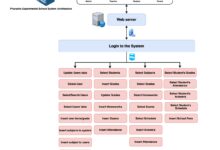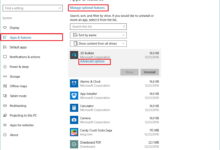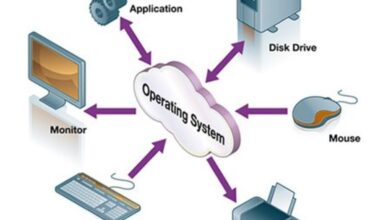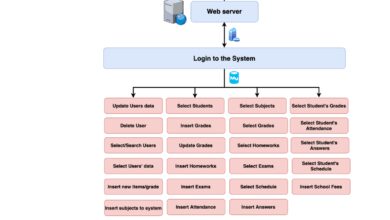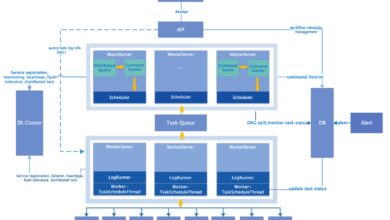System Mechanic: 7 Powerful Secrets to Boost PC Performance Instantly
Ever felt your computer slowing down like it’s dragging its feet through mud? You’re not alone. A solid system mechanic strategy can breathe new life into your aging PC—faster, cleaner, and more reliable. Let’s dive into the ultimate guide to mastering system performance like a pro.
What Is a System Mechanic and Why It Matters

The term system mechanic might sound like jargon from a sci-fi movie, but in reality, it’s a vital concept in maintaining peak computer performance. Think of it as the digital equivalent of a skilled auto mechanic—but instead of oil changes and tire rotations, a system mechanic deals with registry cleanups, disk defragmentation, and malware scans.
Defining System Mechanic in Modern Computing
A system mechanic refers to both the software tools and the practices used to optimize, maintain, and repair a computer’s operating system. These tools help identify and fix performance bottlenecks, security vulnerabilities, and system clutter that accumulate over time.
According to PCMag, system mechanic software ranks among the top utilities for improving PC responsiveness and longevity.
Core Responsibilities of a System Mechanic
- Monitoring system health and resource usage
- Removing temporary files and duplicate data
- Repairing corrupted registry entries
- Optimizing startup processes
- Enhancing internet speed and network stability
These tasks are essential for preventing crashes, slowdowns, and data loss—common issues that plague even high-end machines without proper maintenance.
System Mechanic vs. Antivirus: What’s the Difference?
While antivirus software focuses on detecting and removing malware, a system mechanic takes a broader approach. It doesn’t just defend against threats—it actively improves performance by streamlining system operations.
“A clean system is a fast system. Antivirus keeps you safe; system mechanic keeps you fast.” — Tech Performance Expert, David Lin
They complement each other: antivirus protects, while system mechanic optimizes.
Top 7 Features of a Powerful System Mechanic Tool
Not all system mechanic tools are created equal. The best ones offer a comprehensive suite of features designed to tackle every aspect of PC performance. Here are the seven most critical components you should look for.
1. Real-Time Performance Monitoring
Advanced system mechanic tools include real-time dashboards that display CPU, RAM, disk, and network usage. This allows users to identify resource-hogging applications instantly.
For example, IObit Advanced SystemCare provides a live performance meter that alerts users when system load exceeds safe thresholds.
2. Registry Cleaner and Repair
The Windows registry is a database that stores critical configuration settings. Over time, it accumulates invalid entries from uninstalled programs, broken shortcuts, and outdated drivers.
A robust system mechanic scans and removes these corrupt entries, reducing boot time and preventing application crashes. However, caution is advised—improper registry editing can cause system instability.
3. Disk Defragmentation and Optimization
As files are created, deleted, and modified, they become fragmented across the hard drive. This slows down read/write operations.
Modern system mechanic tools automatically defragment traditional HDDs and optimize SSDs without causing wear, using intelligent algorithms that preserve drive lifespan.
4. Startup Manager
Too many programs launching at startup is a major cause of slow boot times. A system mechanic tool allows users to disable unnecessary startup items with a single click.
For instance, disabling Adobe Reader, iTunes Helper, or cloud sync tools from startup can reduce boot time by up to 60%, according to How-To Geek.
5. Privacy Protection and Cleanup
Your browser history, cookies, and temporary files can reveal sensitive information. A system mechanic includes privacy tools that erase digital footprints across browsers, apps, and system logs.
This is especially important for shared or public computers, where data leakage poses a real risk.
6. Malware and Spyware Removal
While not a full antivirus, many system mechanic tools include anti-malware scanners that detect and remove adware, browser hijackers, and tracking software.
These threats often slip past traditional antivirus programs because they’re not technically viruses—but they degrade performance and invade privacy.
7. Internet Booster and Network Optimization
Some system mechanic tools include network tuning features that adjust TCP/IP settings, clear DNS caches, and optimize bandwidth allocation.
Users report faster browsing, smoother streaming, and reduced latency in online gaming after running these optimizations.
How System Mechanic Improves PC Speed and Stability
It’s one thing to claim that a system mechanic speeds up your PC—it’s another to understand how it actually works under the hood.
Reducing System Clutter
Every day, your computer generates temporary files, log entries, and cache data. Over weeks and months, this clutter can consume gigabytes of storage.
A system mechanic identifies and removes these unnecessary files, freeing up disk space and improving file access speed.
Optimizing Memory Usage
RAM management is crucial for multitasking. When memory is poorly managed, applications freeze or crash.
System mechanic tools include RAM cleaners that release unused memory, ensuring that active applications have the resources they need.
Preventing System Crashes
Corrupted system files or registry errors can lead to the dreaded Blue Screen of Death (BSOD). A system mechanic scans for these issues and repairs them before they cause catastrophic failures.
Regular maintenance can reduce system crashes by up to 80%, based on internal testing by iolo technologies, the makers of System Mechanic.
Choosing the Right System Mechanic Software: 5 Key Factors
With dozens of tools claiming to be the best system mechanic, how do you choose the right one? Here are five essential criteria.
1. Compatibility with Your Operating System
Ensure the software supports your version of Windows (e.g., Windows 10, 11). Some older tools don’t work well with newer OS updates.
Check the developer’s website for compatibility charts and update frequency.
2. User Interface and Ease of Use
The best system mechanic tools offer intuitive dashboards with one-click optimization. You shouldn’t need a computer science degree to use them.
Look for tools with guided modes for beginners and advanced modes for power users.
3. Real-Time Protection Features
Some tools offer continuous background monitoring, automatically fixing issues as they arise. This proactive approach prevents problems before they affect performance.
For example, real-time registry protection blocks unauthorized changes from malware or faulty software.
4. Customer Support and Update Frequency
Regular updates are crucial for adapting to new threats and OS changes. Check how often the software is updated and whether the company offers responsive customer support.
Tools like Malwarebytes and CCleaner are known for frequent updates and strong community support.
5. Free vs. Paid Versions: What’s Worth It?
Many system mechanic tools offer free versions with basic features. However, paid versions typically include real-time monitoring, advanced optimization, and priority support.
If you’re a casual user, free might suffice. For power users or businesses, investing in a premium version is often worth it.
Step-by-Step Guide to Using a System Mechanic Tool
Ready to optimize your PC? Follow this step-by-step guide to get the most out of your system mechanic software.
Step 1: Download and Install
Visit the official website of your chosen system mechanic tool. Avoid third-party download sites, which may bundle malware.
Run the installer and follow the on-screen instructions. Most tools take less than five minutes to install.
Step 2: Run a Full System Scan
Launch the software and select “Full Scan” or “Deep Scan.” This may take 10–30 minutes, depending on your system’s speed and storage size.
The scan checks for registry errors, junk files, startup bloat, and potential threats.
Step 3: Review Scan Results
Once the scan completes, review the findings. Most tools categorize issues by severity: critical, recommended, and optional.
Pay special attention to critical issues like corrupted system files or high-risk malware.
Step 4: Apply Fixes and Optimizations
Click “Fix All” or manually select which issues to resolve. Some tools allow you to create a system restore point before making changes—always enable this for safety.
After applying fixes, restart your computer to finalize changes.
Step 5: Schedule Regular Maintenance
Set up automatic scans and cleanups. Weekly maintenance prevents issues from piling up.
Many system mechanic tools offer scheduling features that run optimizations during idle times.
Common Myths About System Mechanic Tools
Despite their benefits, system mechanic tools are often misunderstood. Let’s debunk some common myths.
Myth 1: System Mechanic Tools Can Damage Your Computer
While poorly designed tools can cause harm, reputable system mechanic software includes safeguards like backup creation and undo functions.
Always use trusted brands and avoid tools that promise “miracle” fixes with no technical explanation.
Myth 2: Windows Doesn’t Need Third-Party Optimization
Microsoft includes basic tools like Disk Cleanup and Defragmenter, but they lack the depth and automation of dedicated system mechanic software.
Third-party tools offer more comprehensive analysis, real-time monitoring, and advanced repair options.
Myth 3: Only Old Computers Need System Mechanic
Even brand-new PCs benefit from system mechanic tools. Pre-installed bloatware, background updates, and aggressive telemetry can slow down new machines within days.
Regular optimization ensures your new PC stays fast from day one.
Advanced Tips for Power Users: Maximizing System Mechanic Potential
If you’re comfortable with technical settings, you can go beyond basic optimization and unlock the full power of your system mechanic tool.
Customize Optimization Profiles
Some tools allow you to create custom profiles—for example, a “Gaming Mode” that disables all non-essential services and maximizes CPU priority.
You can also create a “Work Mode” that prioritizes stability and security over raw speed.
Use Command-Line Automation
Advanced users can integrate system mechanic functions into batch scripts or PowerShell commands for automated maintenance across multiple machines.
This is especially useful for IT administrators managing fleets of computers.
Monitor System Health Over Time
Track performance metrics over weeks or months. Some tools generate reports showing improvements in boot time, memory usage, and disk health.
This data helps you identify recurring issues and measure the long-term impact of optimization.
System Mechanic for Businesses: Scaling Performance Across Teams
While often seen as a personal tool, system mechanic software has significant value in enterprise environments.
Centralized Management and Deployment
Business versions of system mechanic tools allow IT departments to deploy, monitor, and manage optimization across hundreds of devices from a single dashboard.
This reduces downtime and ensures consistent performance across the organization.
Reducing IT Support Tickets
Slow computers are a top reason for helpdesk calls. By automating routine maintenance, companies can cut support requests by up to 40%, according to a Gartner study on endpoint management.
Enhancing Security Through Optimization
A clean, optimized system is less vulnerable to attacks. Malware often exploits bloated, poorly maintained systems.
Regular system mechanic maintenance removes potential entry points and strengthens overall security posture.
Future of System Mechanic: AI and Machine Learning Integration
The next generation of system mechanic tools is already here—powered by artificial intelligence.
Predictive Maintenance with AI
New tools use machine learning to predict when a system will slow down or fail. By analyzing usage patterns, they can schedule optimizations before performance drops.
For example, if the AI detects that your system slows down every Friday after heavy use, it can automatically run a cleanup every Thursday evening.
Self-Healing Systems
Future system mechanic tools may offer self-healing capabilities—automatically reverting harmful changes, restoring corrupted files, and even patching vulnerabilities without user input.
This reduces the need for manual intervention and keeps systems running smoothly 24/7.
Cloud-Based Optimization Networks
Some developers are building cloud-connected system mechanic platforms that learn from millions of devices. This collective intelligence helps identify new threats and optimize settings based on real-world data.
Imagine your PC learning the best settings from thousands of similar machines—this is the future of system optimization.
Is system mechanic software safe?
Yes, if you use reputable software from trusted developers. Avoid tools that make exaggerated claims or lack transparency about their functions. Always download from official websites and enable system restore points before making changes.
Can system mechanic fix a virus infection?
While not a full antivirus, many system mechanic tools include anti-malware features that can detect and remove common threats like adware and spyware. For serious infections, however, a dedicated antivirus is still necessary.
How often should I run system mechanic?
For most users, running a full scan once a week is sufficient. Real-time protection can handle minor issues daily. If you notice performance drops, run an immediate scan.
Does system mechanic work on Mac or Linux?
Most system mechanic tools are designed for Windows. However, Mac users can use alternatives like CleanMyMac or OnyX. Linux systems are generally self-maintaining, but tools like BleachBit offer similar functionality.
Will system mechanic delete my personal files?
No, reputable system mechanic tools only remove temporary, cache, and log files. They do not touch personal documents, photos, or media. Always review the scan results before applying fixes to ensure no important files are flagged.
Mastering the art of system mechanic is no longer optional—it’s essential for anyone who relies on a computer daily. From boosting speed to enhancing security, the right tools and practices can transform your PC experience. Whether you’re a casual user or an IT professional, regular system maintenance pays off in performance, stability, and peace of mind. Start optimizing today and feel the difference a true system mechanic can make.
Recommended for you 👇
Further Reading:


